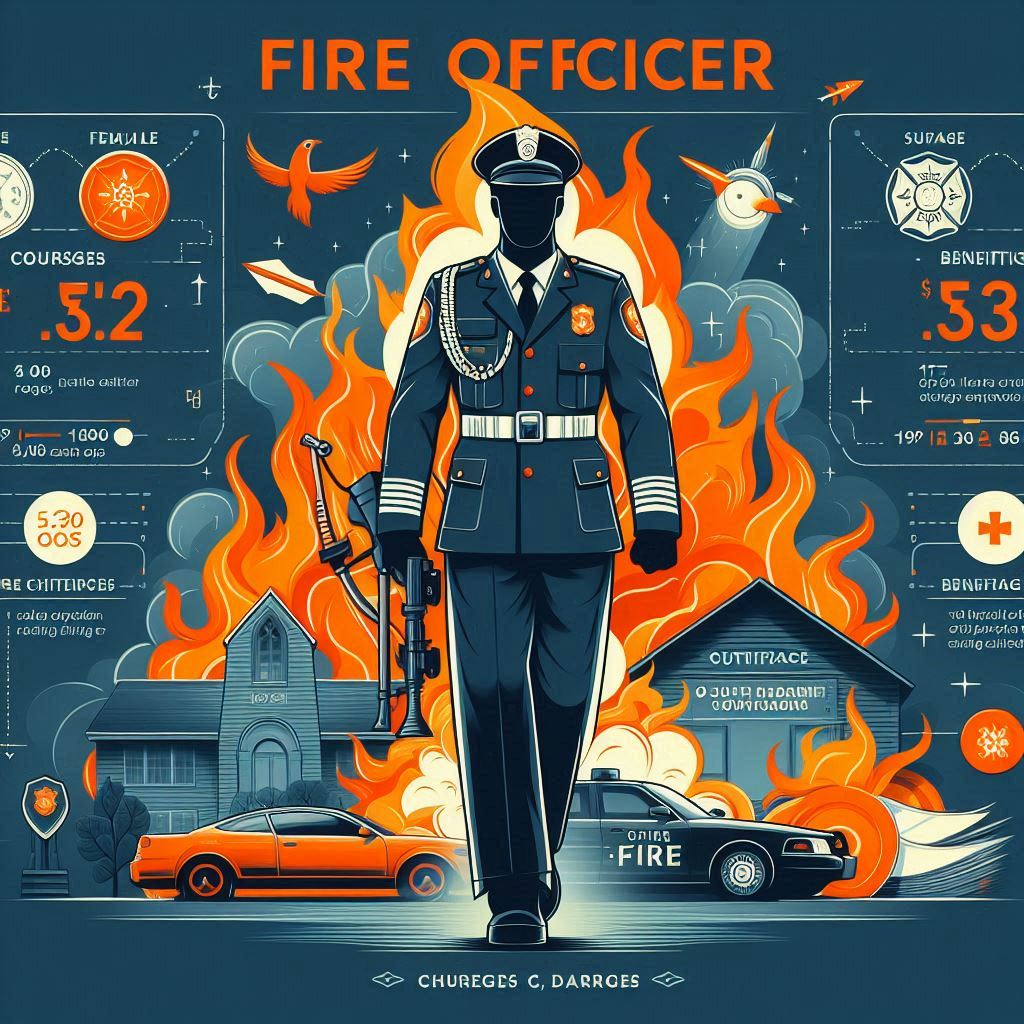
The Complete Guide to Fire Officer Courses: Charges, Benefits, Certification, and Salary
Milan SafetyShare
Introduction
Firefighting is a noble profession that demands courage, quick thinking, and the ability to remain calm under pressure. Fire Officers, in particular, play a critical role in leading firefighting teams, ensuring public safety, and managing emergency situations. To become a Fire Officer, one must undergo specialized training and certification. This blog will cover everything you need to know about Fire Officer courses, including charges, benefits, certification processes, and potential salary.
What is a Fire Officer Course?
A Fire Officer course is designed to prepare individuals for leadership roles within fire services. These courses cover a broad range of topics, including fire behavior, firefighting tactics, emergency response, incident management, and leadership skills. The goal is to equip aspiring Fire Officers with the knowledge and skills needed to lead firefighting operations effectively and ensure the safety of their team and the public.
Charges for Fire Officer Courses
The cost of Fire Officer courses varies depending on the level of training, the institution offering the course, and the country in which the training is conducted. Here’s an overview of typical charges:
-
Basic Fire Officer Courses: These are introductory courses that cover fundamental firefighting and leadership skills. The cost for these courses generally ranges from ₹20,000 to ₹50,000 in India. In other countries, prices can vary from $300 to $1,000.
-
Advanced Fire Officer Courses: These courses provide more comprehensive training in areas such as advanced firefighting tactics, emergency medical response, and incident command. Fees for advanced courses can range from ₹50,000 to ₹1,00,000 in India, and from $1,000 to $3,000 internationally.
-
Specialized Training Programs: Some institutions offer specialized training for specific types of incidents or advanced certifications. These programs may cost upwards of ₹1,00,000 in India and $2,000 to $5,000 in other countries.
-
Online Courses: With the rise of online learning, many institutions now offer Fire Officer courses online. These are often more affordable, ranging from ₹10,000 to ₹30,000 in India and $150 to $800 elsewhere.
Benefits of Taking a Fire Officer Course
-
Enhanced Leadership Skills: A Fire Officer course equips you with the skills necessary to lead a team effectively during emergency situations. This includes decision-making, communication, and strategic planning.
-
Career Advancement: Completing a Fire Officer course can significantly boost your career prospects in the fire service. It opens up opportunities for promotions to higher ranks such as Fire Officer, Fire Chief, or other administrative positions.
-
Improved Safety and Efficiency: The training provides you with in-depth knowledge of fire behavior, fire prevention, and firefighting techniques, which can help improve safety and efficiency during operations.
-
Certifications and Credentials: Completing a recognized Fire Officer course earns you certifications that are highly regarded in the firefighting community. These certifications can be critical for career advancement and are often required for higher-level positions.
-
Networking Opportunities: Training programs often include interaction with experienced professionals and peers, providing valuable networking opportunities that can be beneficial throughout your career.
Certification Process for Fire Officers
The certification process for Fire Officers typically involves several steps:
-
Choose a Recognized Training Provider: Look for institutions or organizations accredited by national or international firefighting bodies. In India, bodies like the National Fire Service College (NFSC) and the Institute of Fire and Safety Engineering (IFSE) are well-known. Internationally, organizations such as the National Fire Protection Association (NFPA) and the International Fire Service Accreditation Congress (IFSAC) provide accredited programs.
-
Complete the Training Program: Enroll in the Fire Officer course that suits your career goals. The course will include both theoretical and practical training, covering essential topics such as fire dynamics, firefighting strategies, hazardous materials, and leadership.
-
Pass the Certification Exam: After completing the course, you will need to pass a certification exam. This exam tests your knowledge of fire science, firefighting tactics, and leadership skills.
-
Gain Practical Experience: Some certification programs require a certain amount of practical experience in a firefighting role before awarding certification. This experience is crucial for applying the knowledge and skills learned during training.
-
Maintain Your Certification: Fire Officer certifications often require renewal every few years. This typically involves completing continuing education courses and passing a recertification exam.
Salary Expectations for Fire Officers
The salary of a Fire Officer varies based on factors such as location, level of experience, and the specific organization they work for. Here’s a general idea of what you can expect:
-
India: In India, the average salary for a Fire Officer ranges from ₹4,00,000 to ₹8,00,000 per year. Senior positions, such as Fire Chiefs, can earn upwards of ₹10,00,000 per year, depending on the organization and location.
-
United States: In the U.S., Fire Officers typically earn between $50,000 and $80,000 annually. Fire Chiefs and senior officers can earn over $100,000, depending on the size of the fire department and the region.
-
United Kingdom: In the UK, Fire Officers can expect to earn between £30,000 and £50,000 per year, with higher salaries for senior positions and those in larger metropolitan areas.
-
Australia: In Australia, the salary for a Fire Officer generally ranges from AUD 70,000 to AUD 100,000 per year. Higher positions like Fire Chiefs can earn significantly more.
Conclusion
Becoming a Fire Officer is a challenging but rewarding career path that requires dedication, rigorous training, and strong leadership skills. By completing a Fire Officer course and obtaining certification, you can enhance your firefighting knowledge, improve your career prospects, and play a vital role in ensuring public safety. Whether you are just starting your journey in fire service or looking to advance your career, investing in the right training is essential for success.